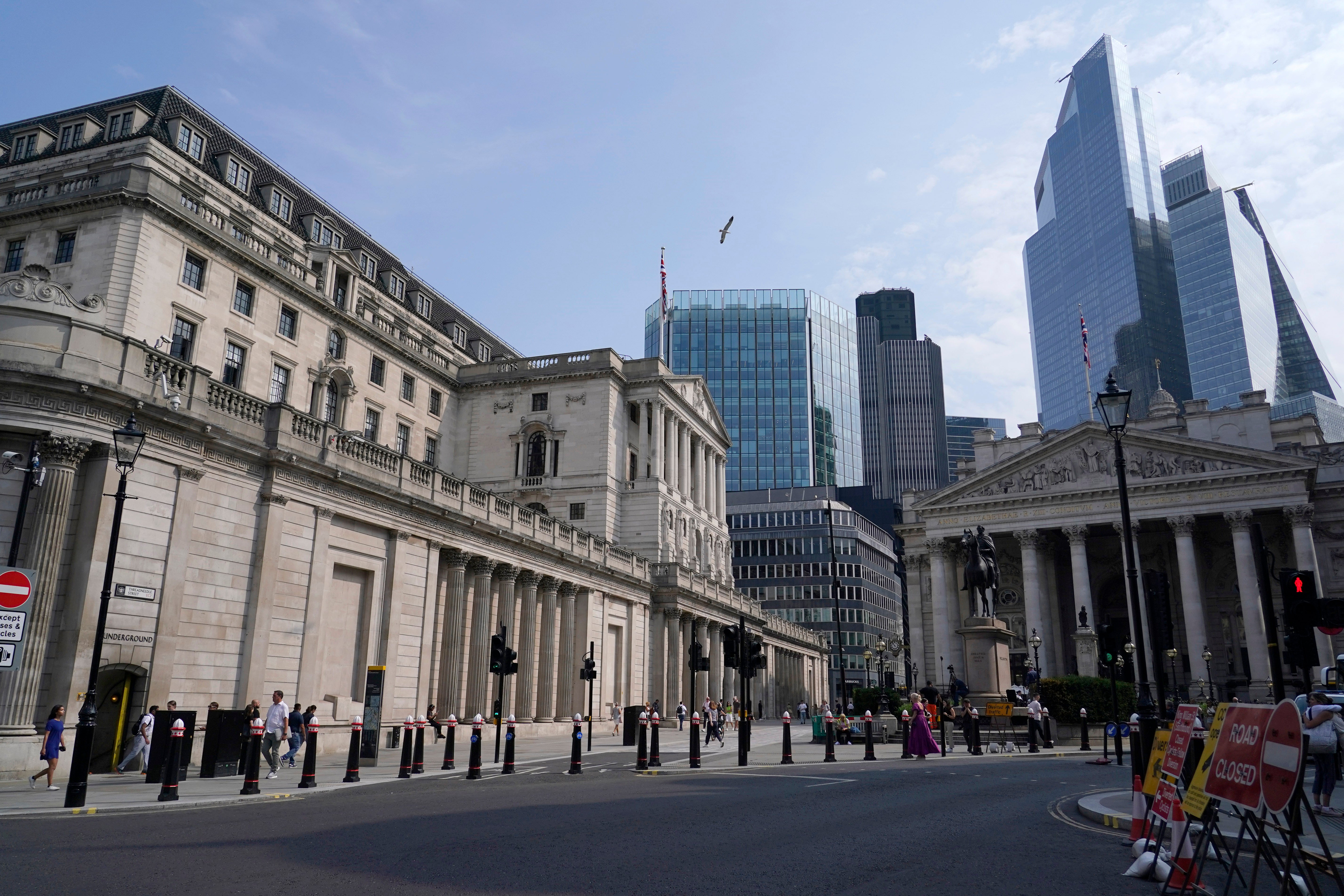Bank of England widely expected to hold interest rates despite big US Fed cut
The Bank of England is widely expected to keep interest rates unchanged later Thursday despite a big cut from the U.S. Federal Reserve, its first since the onset of the coronavirus pandemic more than four years ago

The Bank of England is widely expected to announce it is keeping interest rates unchanged later Thursday despite a big cut from the U.S. Federal Reserve, its first since the onset of the coronavirus pandemic more than four years ago.
Most economists think that a majority — potentially a small majority — of the nine-member Monetary Policy Committee, will opt to keep the bank's main interest rate unchanged at 5% amid ongoing concerns about inflation, particularly the elevated levels in the crucial services sector, which accounts for around 80% of the British economy.
Figures on Wednesday showed that inflation overall in the U.K. held steady at an annual rate of 2.2% in August, with higher airfares offset by lower fuel costs and restaurant and hotel bills.
That means that inflation remains just above the British central bank’s goal of 2% for the second month running, having fallen in June to the target for the first time in nearly three years. Last month, the central bank reduced its main interest rate by a quarter-point, its first cut since the onset of the pandemic. It was a close call, with four of the committee's nine members voting for no change.
Central banks around the world dramatically increased borrowing costs from near zero during the coronavirus pandemic when prices started to shoot up, first as a result of supply chain issues built up and then because of Russia’s full-scale invasion of Ukraine which pushed up energy costs. As inflation rates have fallen from multi-decade highs recently, they have started cutting interest rates.
On Wednesday, the Fed became the latest major central bank to reduce borrowing costs, cutting its main interest by half of a percentage point to roughly 4.8% from a two-decade high of 5.3%, where it had stood for 14 months. It also signaled that there will be more cuts to come in the next few months.
The Bank of England is widely expected to reduce borrowing costs again at its next meeting in November, especially as it will have details of the government's budget on Oct. 30.
The new Labour government has said that it needs to plug a 22 billion pound ($29 billion) hole in the public finances and has indicated that it may have to raise taxes and lower spending, which would likely weigh on the near-term outlook for the British economy and put downward pressure on inflation.
Bookmark popover
Removed from bookmarks